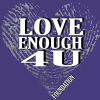Our foundation was set up to provide access to enthusiastic sobriety treatment programs for those who exhibit the need but lack the means. As parents of loved ones who suffered from drug or alcohol problems, all of us at Love Enough 4 U have been touched by substance abuse addiction in some way. We recognize that there are other approaches to recovery that may prove highly effective in true adults. However, for young people, we have not found an approach that seemed to work better.
What is Enthusiastic Sobriety?

The term “enthusiastic sobriety” refers to the specific approach that certain drug and alcohol treatment programs around the United States utilize with young people and adolescents with drug problems. We believe that this approach perfectly fills a large gap in the drug and alcohol treatment world. This approach is directed specifically at adolescents (aged 13-17) and young adults (aged 18-25). Some of the hallmarks of this approach include:
- An emphasis on having fun through weekly sober social activities and alternative peer groups. Young people largely report that they began using drugs as a source of fun and social acceptance. Enthusiastic sobriety recognizes the critical importance of meeting that need after cessation of drug use.
- An emphasis on building a new, positive, sober social network.
- Parental involvement in the treatment process through weekly parent support group meetings and family counseling.
Enthusiastic sobriety has proven to be one of the most effective approaches to drug and alcohol rehabilitation in adolescents and young adults.
The Gap in the Drug Abuse and Addiction Treatment World
We hear it over and over from parents and loved ones: “We’ve tried everything!”
“Everything,” in this case, can refer to a number of things – encouraging / talking, being more strict, being less strict, changing the family rules, counseling, therapy, rehabs, detoxes, halfway houses, and wilderness programs to name a few.
Traditionally, in the addiction treatment world, a drug or alcohol user is motivated to change by the fear of consequences. The trouble with young people is that they often are only a year or two into their drug or alcohol use. Because of this, they often struggle to identify with the adult consequences of using drugs experienced by adults in the addiction treatment world. Therefore, they do not get their needs met very well in traditional treatment settings. This often leads to an individual being “in-and-out” of treatment for years, to no avail. Many heartbroken parents can attest to this phenomenon.
The giant gap in the treatment world is that there is a dire lack of programs and effective resources for adolescent and young adult drug users. Make no mistake – there are many high quality drug and alcohol treatment centers that exist. However, none of them seem to do a better job with young people than enthusiastic sobriety programs.
Enthusiastic Sobriety is a 12 Step Approach

Those in recovery will probably notice that these steps are slightly different than the traditional 12 steps one would come across in an Alcoholics Anonymous or other 12 step program setting. This is because these steps have been modified slightly to apply more specifically to young people.
For instance, whereas in a traditional 12 step setting, one would admit in the first step that “our life had become unmanageable”, a 16 year old problem marijuana user may not be able to admit that. An adolescent with a drug problem is more likely to identify with a “part” of his / her life as being unmanageable, such as school, family life, sports, or relationships.
This variation of the steps is meant to apply to young people in particular, and was created with permission from AA World Services:
The 12 steps of enthusiastic sobriety.
- We admitted that mind-changing chemicals have caused at least part of our lives to become unmanageable.
- We have found it necessary to “stick with winners” in order to grow.
- We realized that a Higher Power, expressed through our love for each other, could help restore us to sanity.
- We made a decision to turn our will and our lives over to the care of God, as we understand Him.
- We made a searching and fearless moral inventory of ourselves.
- We admit to God, to ourselves, and to another human being the exact nature of our wrongs.
- We became willing to allow our Higher Power, through the love of the group, to help change our way of thinking and humbly ask Him to help us change.
- We made a list of all persons we have harmed and became willing to make amends to them all.
- We made direct amends to such people, whenever possible, except when to do so would injure them, others, or ourselves.
- We have continued to look at ourselves and when wrong, promptly admitted it.
- We have sought through prayer and meditation to improve our conscious contact with out Higher Power, that we have chosen to call God, praying only for knowledge of His will for us and the courage to carry that out.
- We, having had a spiritual awakening as a result of these steps, tried to carry our love and understanding to others, and to practice these principles in our daily lives.



